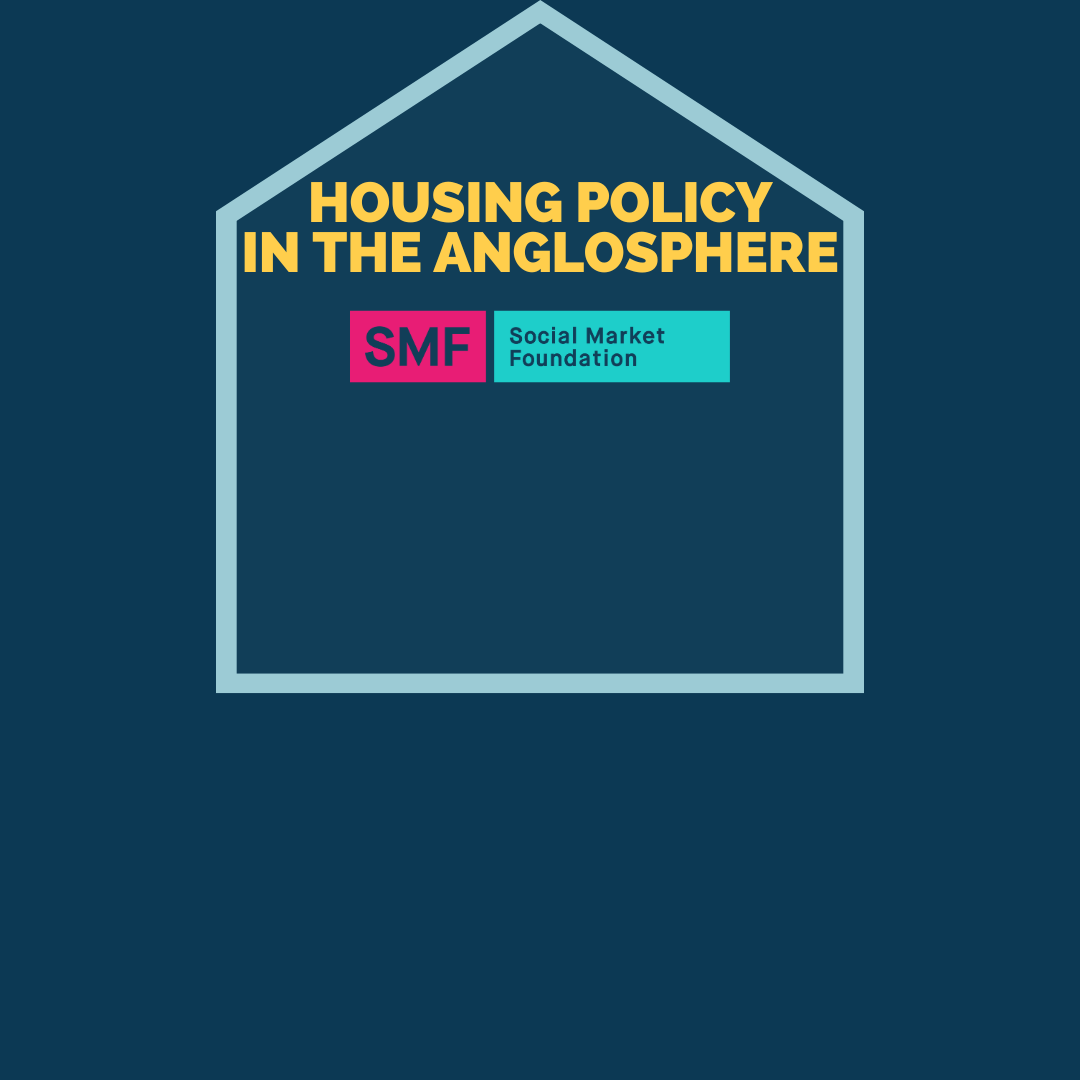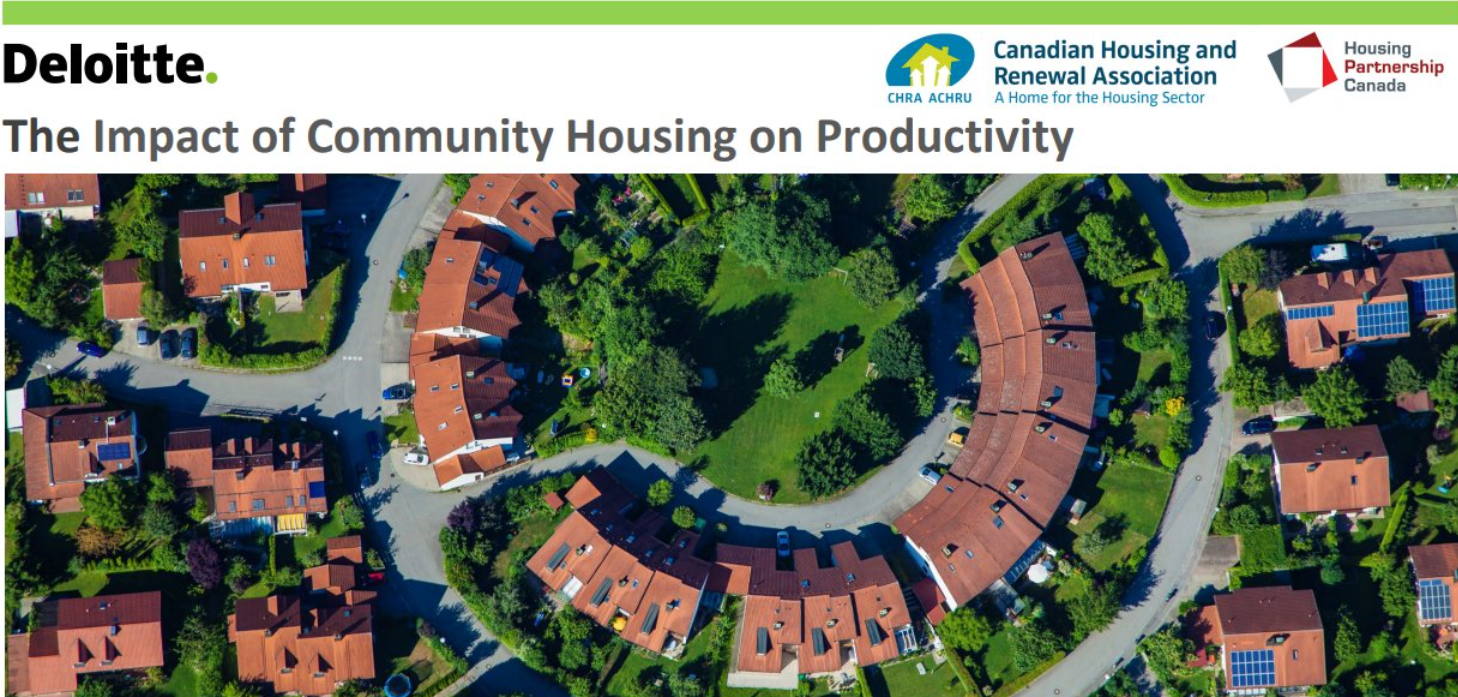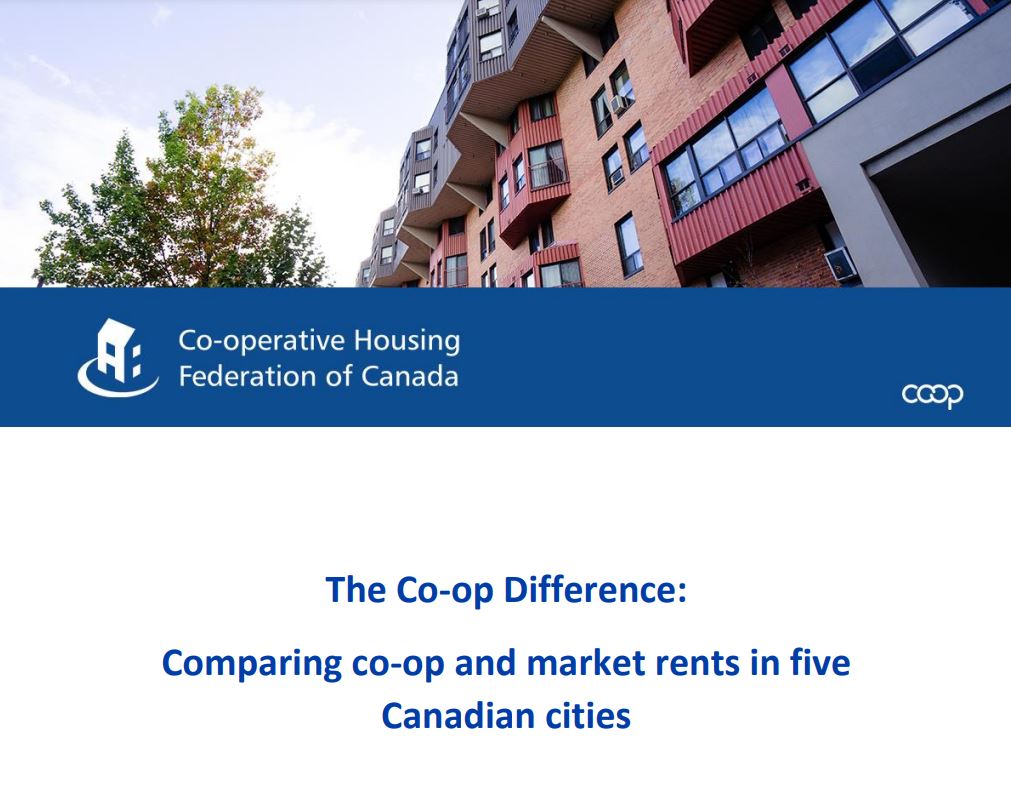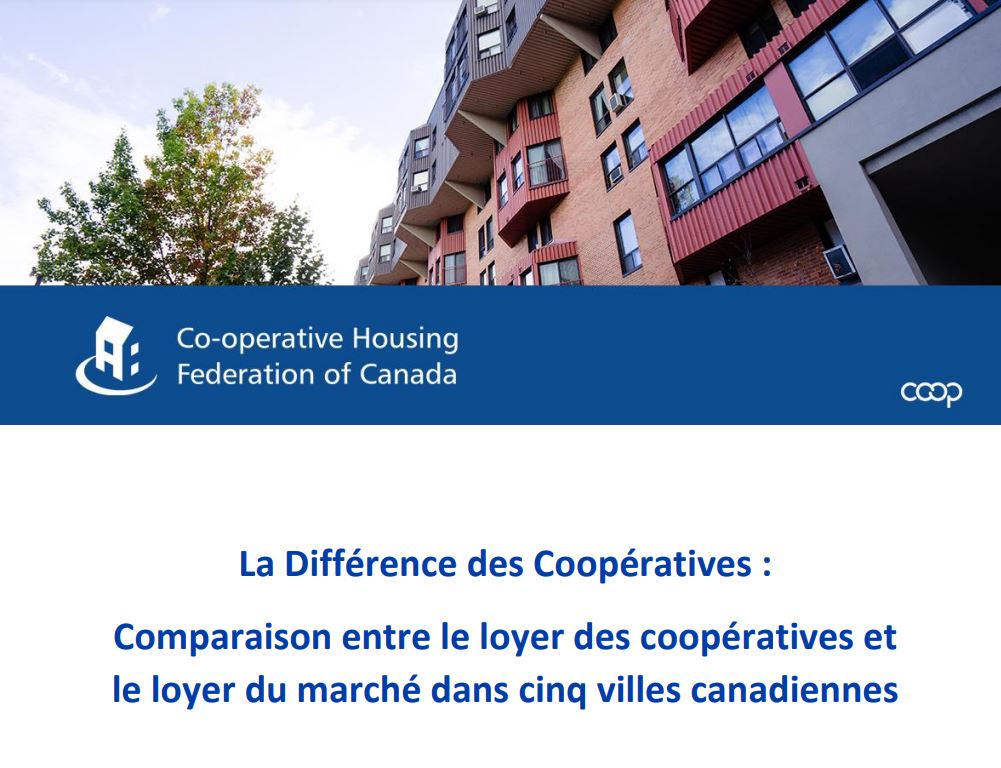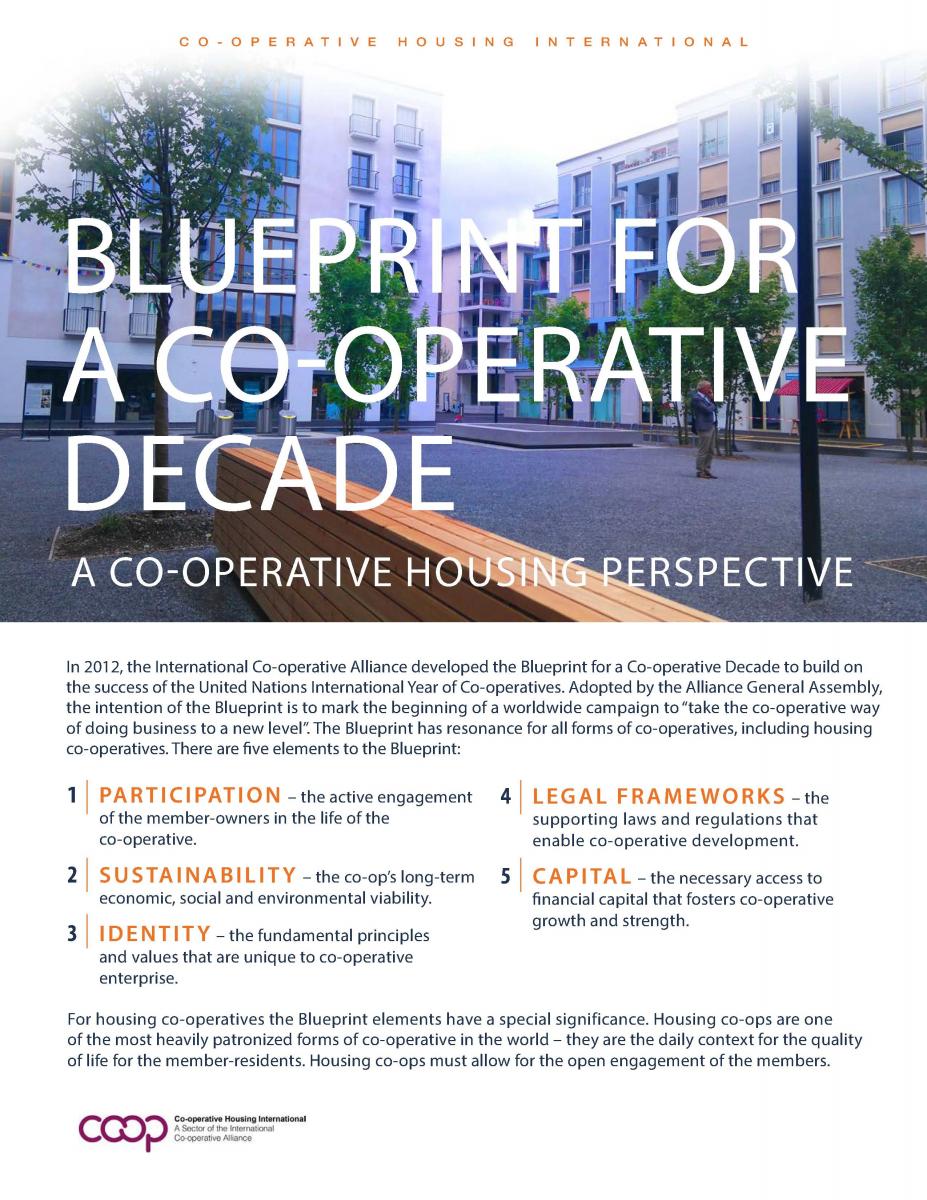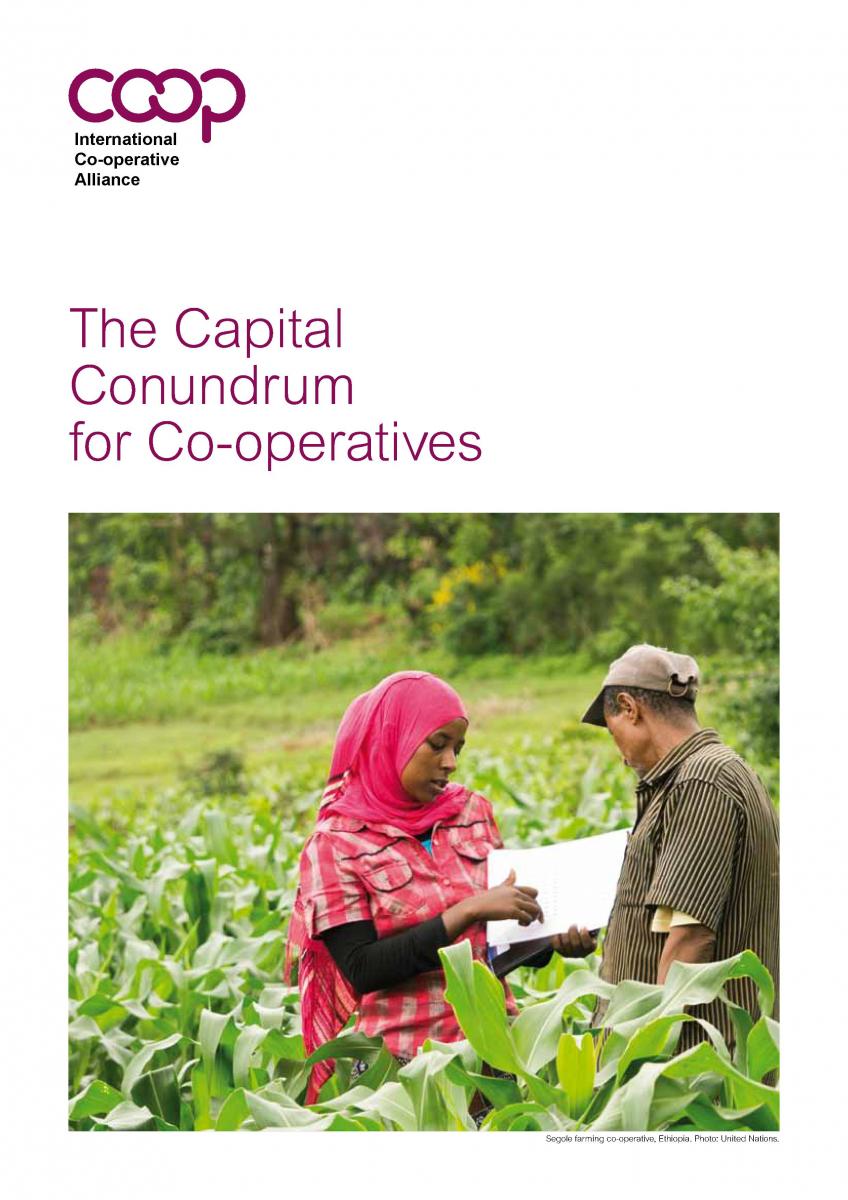About Canada

Athletes Village Housing Co-operative, Vancouver, British Columbia
Early Origins of Co-operative Housing in Canada
The roots of co-operative housing in Canada go back to the 1930s, when the Nova Scotia Antigonish Movement promoted housing co-operatives as part of broader co-operative development. These early co-ops focused on building homes for members, which were sold to them once construction was complete—after which the co-operatives were dissolved. Similar building co-operatives also emerged in Quebec during the interwar period.
Introduction of the Modern Co-operative Housing Model
The contemporary model of co-operative housing in Canada—where co-ops operate on a rental basis and residents collectively own the housing without holding individual equity—was introduced by the student movement. The first student housing co-op was established in 1913 in Guelph, Ontario, followed by the first family housing co-op in 1966. Both remain in operation today, serving as early examples of long-term co-operative housing success.
Government Support and Expansion (1970s–1990s)
In the 1960s, social activists and progressive groups began lobbying the federal government to support non-profit co-operative housing in Canada. Their efforts led to the founding of the Co-operative Housing Foundation of Canada (now CHF Canada) in 1968. Their advocacy succeeded: between 1973 and 1992, the federal government financed the development of thousands of co-operative housing units through three major funding programs.
Provincial governments followed suit. In the mid-1980s, Quebec, Ontario, and British Columbia launched their own co-operative housing programs. During this time, the co-operative housing movement grew rapidly, with new regional associations and development groups forming across the country. These organizations partnered with CHF Canada to provide education, support services, and development expertise to the growing number of co-ops.
Program Cuts and Decline in New Development
However, government support for new co-operative housing in Canada began to wane in the 1990s. The federal government cancelled its last co-op housing program in 1992, and Ontario followed by terminating its programs in 1995. British Columbia’s more limited efforts ended in 2001. Only Quebec continued to support co-operative housing, launching provincial programs and leveraging limited federal cost-sharing initiatives introduced in 2002.
Despite federal contributions being available to other provinces, no significant new co-operative housing developments have emerged outside Quebec in the past two decades. The lack of political will at the provincial level has been a major barrier.
Transition to a New Administrative Model
In 2005, a new chapter began. CHF Canada entered into a unique partnership with the federal government to create the Agency for Co-operative Housing. This independent agency now manages the federal co-operative housing portfolio, which still includes long-term operating agreements with existing co-ops. Although no new developments are funded under these agreements, the agency uses innovative management strategies to ensure high performance and accountability within the sector.
The Legacy and Ongoing Role of Co-operatives
While the pace of development has slowed, co-operative housing in Canada continues to play a vital role in providing affordable, community-oriented rental housing. Today, hundreds of co-operatives serve Canadians in urban and rural communities, offering a democratic, non-profit alternative to the private rental market. The model remains a cornerstone of Canada’s affordable housing landscape, especially for low- and moderate-income households.
Context
Except for a small number of “equity housing co-operatives”, virtually all housing co-operatives in Canada have received financial assistance from the federal and/or the provincial governments to make their rents affordable. But it should be stressed that the various governments do not own the co-operatives. They are independent corporations working in partnership with government.
Co-operatives are spread throughout Canada, with the largest concentrations in the three most populated provinces and the three largest cities. However, it is important to point out that several thousand housing co-operative units can be found in rural areas.
Government Support
Today most housing co-operatives in Canada continue to depend on government financial support, though the contractual agreements under which this assistance is provided have ended for some co-ops and are set to end for most others within the next 20 years.
Government support has come in the form of preferential government mortgages, operating subsidies and rent assistance to low-income households. At the conclusion of their government agreements, Canadian co-ops will have paid off their initial mortgages, though they may need to re-finance to repair and renovate aging buildings. At the same time, the co-ops will receive no further government assistance and will lose the government protection for those that fall into difficulty.
This transition to independence brings challenges for the co-op housing movement in Canada; notably the continued dedication of the stock to co-operative housing purposes, the viability of the co-ops without a government safety net and their capacity to assist low-income families without government subsidies. To assist the co-operatives in this transition, CHF Canada has implemented the 2020 Vision. This process defines and invites housing co-ops to adopt high standards of operations for good governance, sound management and environmental sustainability.
Currently there are no government programs that are targeted specifically at the development of new housing co-operatives. The federal and provincial governments contribute funding through a program for the development of affordable housing, which can include co-op housing. But program conditions have not favoured co-op development, so we have seen little new co-op housing in recent years. Quebec is the exception, as it has its own program, under which a number of new co-ops have been developed for close to 30 years.

Local 75 Hospitality Workers Housing Co-operative, Toronto, Ontario
Overview of Co-operative Housing in Canada
Co-operative housing in Canada plays a vital role in providing secure, affordable, and community-driven housing solutions across the country. These housing co-operatives operate on a non-profit basis and emphasize long-term affordability, democratic governance, and mixed-income communities. Here are the core features that define Canadian co-op housing:
Key Characteristics of Canadian Housing Co-operatives
1. Permanent Rental Model
Canadian co-op housing is typically structured as permanent rental. Members do not accumulate equity or ownership in their homes. Instead, the properties are collectively owned by the co-operative.
2. Non-Profit Operations
All co-operative housing operates on a non-profit basis. Rents are calculated to cover operational expenses, capital reserves, and long-term maintenance—without generating profit or issuing dividends to members. This non-profit model aligns with government housing program requirements.
3. Mixed-Income Communities
Most co-ops support a mixed-income membership. Between 30% to 50% of co-op households receive direct rental assistance, ensuring affordability for lower-income residents.
4. Diverse Membership
Co-ops cater to a wide range of individuals, including families, seniors, newcomers to Canada, and those with special needs. This diversity strengthens social cohesion within communities.
5. Security of Tenure
Residents enjoy long-term housing security, provided they meet their membership and tenancy obligations.
6. Dual Member-Tenant Status
Prospective residents must first be accepted as co-op members. Once approved, they are granted tenancy. In some provinces, tenant rights are legally protected even if membership status changes.
7. Democratic Participation
Each member has one vote, regardless of unit size or rent level. This democratic principle ensures equitable participation in decision-making processes.
8. Modest Size and Community Focus
Canadian housing co-operatives typically range in size from 5 to 770 homes, with an average of around 60 units—creating close-knit, community-focused environments.
9. Varied Management Approaches
Management models differ. Some co-ops hire professional staff or engage management companies, while others are managed by members. Volunteer-only models have often led to poor results and are now less common.
10. Member Deposits and Share Purchases
Depending on provincial legislation, members may pay a security deposit (usually one month’s rent) or purchase a refundable share. These are returned upon departure from the co-op.
Student Housing Co-operatives
Canada is also home to about a dozen student housing co-operatives. Located near major universities, they offer varied housing types, including dormitories, apartment buildings, and townhouses. Financing has come from several development programs.
Financing Co-operative Housing in Canada
The financing of co-operative housing varies by program and jurisdiction. Key financial supports include:
- Long-term Low-Interest Loans: Provided for up to 50 years by the Canada Mortgage and Housing Corporation (CMHC).
- Construction Grants: Used to reduce development costs.
- Operating Subsidies: Ongoing financial assistance based on need.
- Rent Support: Housing allowances for low-income households, administered by the co-op.
CMHC or provincial housing authorities insure co-op mortgages, and many co-ops have signed long-term operating agreements with governments, typically lasting up to 35 years.
A now-defunct stabilization fund was created in co-ops financed by the final federal program using index-linked mortgages. This fund protected the federal government against mortgage insurance claims and supported financially struggling co-ops.
CHF Canada has established funds such as the risk underwriting fund and student co-op housing fund to provide bridge financing and operational support.
Legal Framework for Co-operative Housing in Canada
Several legal instruments govern the operation of Canadian housing co-operatives:
- Provincial Co-operative Acts: Define the organizational structure and legal status of co-ops.
- Operating Agreements: Outline the roles and responsibilities of co-ops and government partners.
- Tenant Legislation: Applies variably across provinces, influencing tenancy rules within co-ops.
- Federal Tax Law: Regulates non-profit status under the Income Tax Act.
- General Compliance: Co-ops must comply with broader laws concerning employment, contracts, safety, environment, and human rights.
The Canadian Co-operative Housing Movement
The co-operative housing movement in Canada includes residents, co-ops, regional federations, and national organizations. Unlike many countries, Canada has separate movements for non-profit housing associations and housing co-operatives.
Co-operative Housing Federation of Canada (CHF Canada)
Established in 1968, CHF Canada is the national voice for housing co-operatives. It is a democratic, grassroots organization with a 16-member board elected from across the country. CHF Canada provides services such as advocacy, education, bulk purchasing, and operational support.
Regional Federations and Structure
Across more than 17 regions, co-ops have formed local federations that collaborate with CHF Canada. In Quebec, housing co-operatives are affiliated with CHF Canada through a special agreement reflecting the province’s distinct heritage.
CHF Canada has over 900 member housing co-operatives representing over 69,000 housing units, excluding those in Quebec.
For more information on CHF Canada visit here.
Resources Tagged "Canada"
The case study’s analysis of CLTFBC’s strengths, weaknesses, opportunities, and threats provide valuable insights for other CLTs looking to adopt a supportive coop housing approach. As housing unaffordability has escalated to a crisis level, there is growing recognition of the value of coop housing and community land trusts (CLTs) in providing secure and affordable tenure to renters in Canada.Read More
Advocacy Canada Study
The Co-operative Housing Federation of Canada guide provides a step-by-step approach to starting a housing cooperative. Key stages include organizing a core group, establishing a vision, understanding co-op housing legislation, choosing a model, seeking support, and working with consultants.Read More
Financing and Development Canada Educational
Five reports investigate housing policy from other countries for solutions to the UK’s housing shortage. Each of the five reports is a comparative study of housing policy internationally with a particular focus on Australia, Canada, Ireland and New Zealand.Read More
Policy Australia Report
Research from Canada shows there is a causal connection between the proportion of community housing within the overall housing stock and gains in economic productivity. The Canadian Housing and Renewal Association (CHRA), Housing Partnership Canada, and sector partners commissioned Deloitte to produce a study on the economic value of protecting and building more cooperative and non-profit housing.Read More
Policy Canada Policy
This Canadian report, released in November 2022, compares the occupancy charges (rents) of rental housing co-ops to those of similar rental properties in the private market. The study examined housing charges in Vancouver, Victoria, Edmonton, Toronto, and Ottawa between 2006 and 2021.Read More
Policy Canada Study
Ce rapport canadien, publié en novembre 2022, compare les droits d’occupation (loyers) des coopératives d’habitation à loyer à ceux d’immeubles locatifs similaires sur le marché privé. L’étude a examiné les droits d’occupation des villes de Vancouver, Victoria, Edmonton, Toronto et Ottawa entre 2006 et 2021.Read More
Policy Canada Study
This essay does not pretend to be a work of original research or even of comprehensive synthesis and interpretation. It does aim to pull together selected points of view about Rochdale to give readers a convenient point of entry into some complex issues.Read More
Governance Canada
This report was commissioned so that the Canada Mortgage and Housing Corporation (CMHC) could have a better understanding of how co-operative housing models operate in other countries and also to look at possible “best pract ...Read More
Financing and Development Canada
This article is a few years old but it explains really well what co-operative housing is all about and how it differs from low-income housing or social housing in Canada. Unlike privately owned low-income housing or City-run “ ...Read More
Community Canada
This presentation is an overview of the purpose of CHF Canada's Refinancing Program. How does the program work? How are housing co-operatives supported throughout the refinancing process? What do co-operatives need to do to qualif ...Read More
Financing and Development Canada
This resource from Ontario, Canada walks you through the basics of co-operatives, forming and operating a co-operative, and developing a business plan for a co-operative. ...Read More
Canada
Take this quiz and see if you know the difference between the roles of your co‑op manager and board of directors. Follow-up test results with a Good Governance Action Plan. ...Read More
Governance Canada
Getting Governance Right - Good Governance and Principled Leadership for Housing Co-ops talks about how important good governance is if co-ops want to make sure they have sound management.Read More
Governance Canada
Getting our Co-op Principles Right is a short guide to the international co‑op principles, and what they mean for governance in housing co‑ops. It is intended as a companion to Getting Governance Right, a Co-operative Housing ...Read More
Governance Canada
In 2012, the General Assembly of the International Co-operative Alliance developed the Blueprint for a Co-operative Decade. The Blueprint is intended as a legacy of the United Nations International Year of Co-operatives. Its five elements unite co-operatives worldwide as a distinct form of sustainable, people-centred enterprise.Read More
Management Canada
The Cooperative Identity — the shared values and principles that unite cooperatives worldwide — is being revisited for the first time in decades. The International Cooperative Alliance (ICA) has released Discussion Draft 2 of ...Read More
Governance Global Study
The International Legal Research and Analysis Initiative (ILRAI) of the International Cooperative Alliance, coordinated by Cooperative Housing International, provides the first comparative legal analysis of cooperative housing fra ...Read More
Legal Global News Article
L'habitat coopératif offre des logements abordables à long terme, gérés par les résidents, avec des avantages sociaux, économiques et environnementaux avérés. Malgré son impact mondial, ce secteur reste méconnu.Read More
Financing and Development Global Report
Explore public policies supporting cooperative housing worldwide in this comprehensive report. Discover how governments and cooperatives collaborate to create sustainable and affordable housing solutions globally.Read More
Research Global Research Paper
The Commission's final report on Cooperative and Mutual Housing (Bringing Democracy Home) highlighted the need for consideration of the role that cooperative and mutual housing could play in the national housing strategy. The Fina ...Read More
Financing and Development Global Report
Par cette publication, nous souhaitons ouvrir le débat sur le logement en tant que droit fondamental et enjeu métropolitain, en mettant en lumière l’expérience de grandes métropoles et dans l’espoir d’inspirer des idées nouvelles pour aborder cet enjeu absolument fondamental de l’urbanisation moderne.Read More
Advocacy Global
In 2000, United Nations (UN) member states recognised the need to build global partnerships for development and the exchange of expertise as one of the Millennium Development Goals. Across the international development field, part ...Read More
Financing and Development Global
New report: The Capital Conundrum for Co-operatives "The Capital Conundrum for Co-operatives", a new report released by the Alliance’s Blue Ribbon Commission explores ideas and options available to co-operatives that need suitab ...Read More
Financing and Development Global
Financing the development of housing co-operatives is a challenge and more so in time of financial restrictions and uncertainty. CHI members discussed the issue during a seminar held in November 2009 in Geneva. Presentations w ...Read More
Financing and Development Global
The Forest Products Annual Market Review 2013 reports that the development of new refinement processes has led to the production of new and more affordable wood based products such as cross-laminated timber (CLT). The report sta ...Read More
Sustainability Global
Updated Guidance Notes on the Co-operative Principles, edited by David Rodgers, former President of Co-operative Housing InternationalRead More
Governance Global
The ILO views cooperatives as important in improving the living and working conditions of women and men globally as well as making essential infrastructure and services available even in areas neglected by the state and investor-driven enterprises. Cooperatives have a proven record of creating and sustaining employment – they provide over 100 million jobs today; they advance the ILO’s Global Employment Agenda and contribute to promoting decent work.Read More
Legal Global
Cooperative housing offers long-term, affordable homes governed by residents, with proven social, economic, and environmental benefits. Despite its global impact, the sector remains under-recognized.Read More
Financing and Development Europe Report
Student housing cooperatives have become very popular in the USA and many of these housing co-operatives are members of organizations such as NASCO. Unlike a resident who acquires shares at market rates to earn the right to occupy ...Read More
Community Global
The Good Governance Charter for Housing Co-operatives was launched at the ICA Housing Plenary in Manchester in November 2012.It has three parts:A 10-point set of good governance practicesAn interpretive statement for each good p ...Read More
Governance Global
This second volume of Housing Co-operative Profiles focuses on African countries, showcasing the ingenuity and commitment of cooperators working under difficult conditions. It offers insights into the legal, financial, and historical contexts of housing co-ops, aiming to inspire broader adoption of the model as a solution to the global housing crisis.Read More
Community Global Report
The Blueprint for a Co-operative Decade is a worldwide campaign to “take the co-operative way of doing business to a new level”. The five key elements of the Blueprint are participation, sustainability, identity, legal frameworks and capital. The Blueprint is particularly relevant to co-operative housing and the Blueprint interpretation for co-operative housing below explains how.Read More
Governance Global


